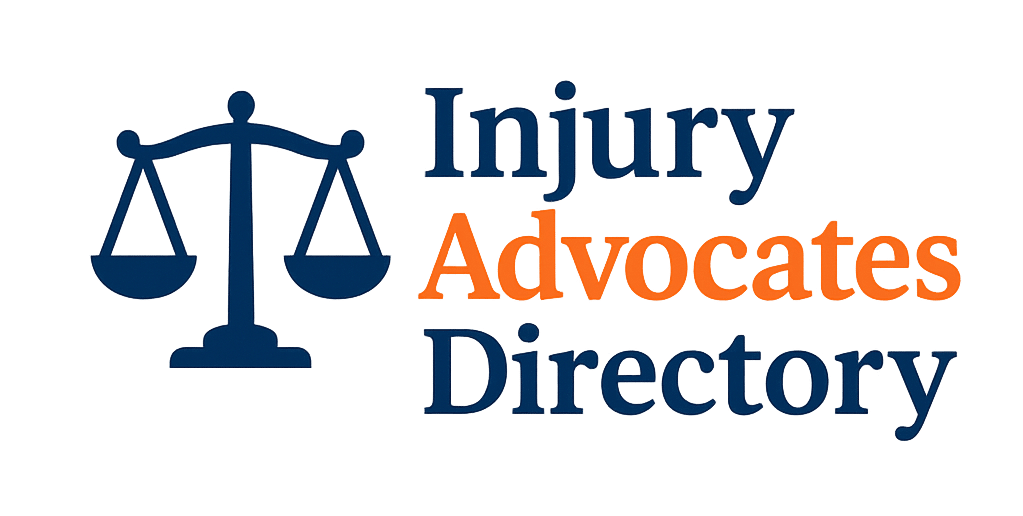Many people have misconceptions regarding personal injury claims and the lawyers who handle them. These misunderstandings can lead to delayed actions and missed opportunities for rightful compensation. In this article, we will explore the common myths about personal injury lawyers and clarify the realities surrounding personal injury claims.
Common myths about personal injury claims: what are they?
Personal injury claims often come with a set of myths that can mislead victims. One prevalent myth is that all claims are frivolous and only benefit the lawyers involved. In reality, most claims are based on valid incidents that require legal action to secure fair compensation for victims.
Another misconception is that claiming personal injury is a quick process. Many individuals believe that once they file a claim, the compensation comes swiftly. However, the truth is that personal injury cases can take months or even years to resolve, particularly if they go to trial.
Additionally, some victims think that they do not need a lawyer if their injuries are minor. This is a dangerous belief, as even seemingly minor injuries can lead to significant medical expenses and long-term effects. Seeking legal advice can ensure that victims understand their rights and the complexities of their cases.
What is the truth behind insurance companies and settlement offers?
Insurance companies often play a significant role in personal injury claims, but their primary goal is to minimize payouts. Many people mistakenly believe that initial settlement offers from insurance companies are fair. In reality, these offers are typically low and designed to dissuade victims from pursuing legal action.
To navigate this, victims should consider the following:
- Understand that initial offers are negotiable and often do not reflect the full extent of damages.
- Insurance companies may pressure you to settle quickly, but it is crucial to evaluate your injuries and potential long-term impacts.
- Consulting with a personal injury lawyer can help you determine a fair settlement range based on your case.
Engaging a lawyer can significantly impact the settlement amount, as experienced attorneys know how to negotiate effectively with insurance companies.
Do you need a lawyer for minor injuries?
A common belief is that hiring a lawyer is unnecessary for minor injuries. This misconception can lead victims to handle claims independently, often to their detriment. Even minor injuries can escalate or result in unforeseen complications.
Consulting a lawyer can provide clarity and guidance on whether legal representation is warranted. Some key points to consider include:
1. Medical documentation: A lawyer can assist in gathering medical records and establishing a connection between the injury and the accident.
2. Understanding the law: Personal injury laws can be complex, and having a knowledgeable lawyer can ensure you do not miss important legal nuances.
3. Maximizing compensation: A lawyer can help identify all potential damages, including lost wages, pain, and suffering, which victims may overlook when proceeding on their own.
In conclusion, even if you believe your injury is minor, seeking legal advice can be beneficial.
How do personal injury cases actually resolve?
Many individuals assume that personal injury cases automatically go to trial. However, most cases settle out of court. This can happen for various reasons, such as:
- The expense and time involved in a court trial.
- The desire for a quicker resolution for all parties involved.
- The potential uncertainty of a jury's decision.
Understanding how these cases resolve is crucial for victims. It can dramatically affect how they approach their claims. Engaging a personal injury lawyer can facilitate negotiations and settlement discussions, providing a better chance of achieving a favorable outcome.
Why do many people think personal injury cases are quick?
Another prevalent myth is that personal injury cases are resolved quickly. While some cases may take mere weeks, most require extensive investigation, negotiations, and sometimes litigation.
Victims often underestimate the time it takes to gather evidence, consult with experts, and negotiate with insurance companies. Each of these steps can prolong the case. Moreover, court schedules and legal procedures can add additional time to the resolution process.
It is essential for victims to be patient and understand that a thorough process often results in better compensation.
What should you know about filing deadlines for claims?
Filing deadlines, or statutes of limitations, are crucial in personal injury cases, yet many people are unaware of their significance. Each state has its own timeline within which claims must be filed, and missing this deadline can result in losing the right to pursue compensation.
Some important points about filing deadlines include:
1. Varying timelines: Most states have a two to three-year statute of limitations, but some cases, like those against government entities, may have shorter deadlines.
2. Acting promptly: It's important to act quickly to preserve evidence, gather witness statements, and build a strong case.
3. Legal assistance: Consulting a lawyer can help victims understand their specific deadlines based on their circumstances and state laws.
Are personal injury lawyers affordable for everyone?
A common misconception is that hiring a personal injury lawyer is prohibitively expensive. Many potential clients hesitate to seek representation because they fear high legal fees. However, many personal injury lawyers operate on a contingency fee basis, which means they only get paid if the client wins their case.
This payment structure provides several advantages:
- Access to legal representation without upfront costs.
- Motivation for lawyers to secure the highest possible compensation for clients.
- Less financial risk for victims, who may be recovering from their injuries and unable to afford legal fees.
Understanding this can help victims feel more confident in seeking legal help without the stress of financial burdens.
Frequently asked questions about personal injury laws
Related questions about personal injury claims
Why do personal injury attorneys have a bad reputation?
The reputation of personal injury attorneys can be affected by a few factors. Some individuals perceive them as opportunistic, capitalizing on others’ misfortunes. This stereotype often overshadows the reality that many attorneys are dedicated to advocating for victims’ rights.
Additionally, sensationalized media portrayals can contribute to this negative perception. It's essential to recognize that while some lawyers may engage in unethical practices, the majority operate with integrity, striving to help clients navigate complex legal systems.
What are the odds of winning a personal injury lawsuit?
The odds of winning a personal injury lawsuit vary widely based on several factors, including the strength of the evidence, the jurisdiction, and the effectiveness of legal representation. Generally, claims that settle before trial have a higher success rate, as they are often resolved based on mutual agreement.
Strong cases backed by thorough evidence and legal expertise can significantly enhance the likelihood of winning. Consulting with an experienced personal injury lawyer can help potential clients understand the nuances of their specific cases and improve their chances of success.
What not to say to an injury lawyer?
When engaging with a personal injury lawyer, certain statements can hinder the case. It's advisable to avoid:
- Undermining your injuries: Avoid saying things like “It’s not that serious” when discussing your condition.
- Admitting fault: Never admit to being responsible for the accident, as this can jeopardize your case.
- Speaking with insurers before consulting a lawyer: This can lead to misunderstandings and less favorable settlements.
Maintaining clear communication and being cautious about what you disclose can help your lawyer represent you more effectively.
What is the hardest injury to prove?
Proving injuries varies in difficulty depending on the nature of the injury. Generally, *soft tissue injuries*—such as whiplash or back pain—can be challenging to substantiate, as they often lack visible signs.
Additionally, psychological injuries like PTSD can be difficult to prove, as they may not have concrete evidence. Establishing credibility through medical documentation, witness testimony, and expert evaluations can bolster these cases.
Overall, understanding these challenges can prepare victims to work closely with their attorneys for the best possible outcomes.
By debunking the common myths about personal injury lawyers, victims can navigate their claims with greater confidence and understanding, ensuring they pursue the compensation they rightfully deserve.

